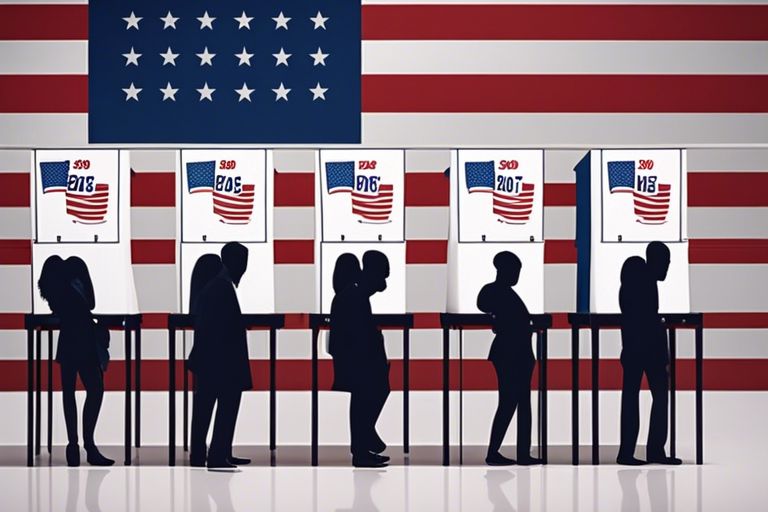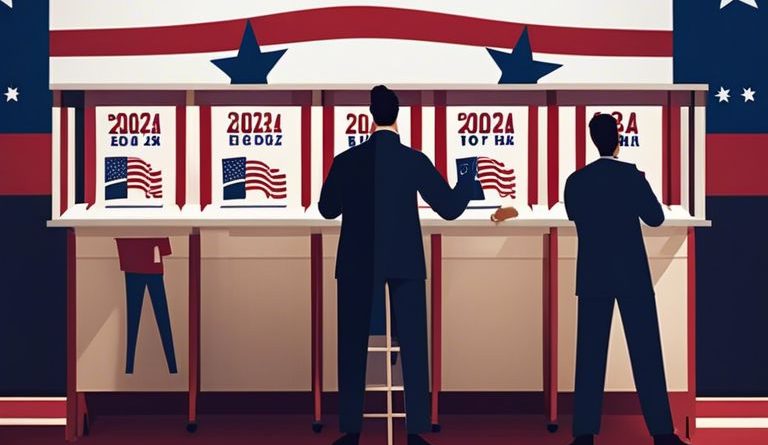How Will Voting Rights Legislation Impact The 2024 Election?
Legislation surrounding voting rights is poised to have a significant impact on the upcoming 2024 election, shaping the very core of how democracy functions in the United States. As you examine into the intricate web of voting rights laws and regulations, you will uncover the potential implications these changes may have on voter turnout, access to polling stations, and ultimately, the outcome of the election. Understanding the nuances of these legislative decisions will be crucial as you navigate the political landscape leading up to 2024.
The Current State of Voting Rights
Recent Legislation and Its Impact
An understanding of the current state of voting rights is crucial as we look towards the 2024 election. Recent legislation at both the state and federal levels has brought voting rights to the forefront of political discussions. From the For the People Act to state-level voting restrictions, these laws have the potential to significantly impact voter turnout and accessibility.
Voter Suppression and Its Consequences
Legislation surrounding voting rights is not just about the laws themselves; it’s about the consequences they have on democracy. Voter suppression tactics, such as restrictive ID requirements and limitations on early voting, disproportionately affect minority and marginalized communities. These actions can erode the fundamental principles of fair elections and hinder the voices of those most in need of representation.
Suppression of voter rights can lead to disenfranchisement and a sense of exclusion from the political process, ultimately weakening the democratic foundation of the electoral system. Understanding the impact of voter suppression is vital in advocating for legislation that protects and promotes equitable access to voting for all eligible citizens.
The 2024 Election Landscape
If you are eager to understand how the voting rights legislation will impact the 2024 election, it’s crucial to examine into the current political landscape. With the midterm elections on the horizon, the stage is set for a highly contentious and closely fought battle between the Republicans and Democrats. As both parties strategize and mobilize their base, the key races to watch will provide valuable insights into the shifting dynamics of American politics.
Key Races to Watch
Any astute observer of American politics knows that certain key races can serve as bellwethers for the broader political climate. Whether it’s a heated Senate race in a battleground state or a closely contested gubernatorial race, these elections can offer a glimpse into which way the political winds are blowing. Keep a close eye on these races as they unfold, as they may hold the key to understanding the potential impact of voting rights legislation on the 2024 election.
Demographic Shifts and Their Effect on Voting Patterns
Landscape
This chapter will explore the demographic shifts that are reshaping the American electorate and the potential impact on voting patterns in the upcoming election. From the changing racial and ethnic makeup of the electorate to the evolving attitudes of different age groups, these demographic shifts have the power to influence the outcome of key races and shape the political landscape in 2024.
This in-depth analysis will provide you with valuable insights into how demographic changes are likely to impact voting behavior in the upcoming election. By understanding these trends, you can better prepare yourself for the twists and turns of the 2024 election cycle and gain a deeper understanding of the potential consequences of voting rights legislation.

The Role of Congress in Shaping Voting Rights
Proposed Legislation and Its Proponents
An necessary role of Congress in shaping voting rights lies in the introduction and passage of legislation aimed at protecting and expanding access to voting. Assuming voting rights legislation is pushed through successfully, proponents argue that it will ensure fair representation and participation in the electoral process for all citizens. The proposed bills, such as the For the People Act and the John Lewis Voting Rights Advancement Act, seek to address issues like voter suppression, gerrymandering, and campaign finance reform.
Opposition and Potential Roadblocks
One significant challenge that Congress faces in shaping voting rights is the opposition it encounters from certain lawmakers and interest groups. An array of opponents, including those who believe the proposed legislation infringes on states’ rights, argue against federal intervention in elections. This opposition can create potential roadblocks in the form of filibusters, partisan gridlock, and legal challenges, which may hinder the progress of voting rights legislation.
Rights Despite these obstacles, it is crucial for Congress to navigate and address the opposition effectively to enact meaningful voting rights legislation that can positively impact the 2024 election and ensure a fair and inclusive democratic process for all Americans.
The Impact on Marginalized Communities
Many communities of color, low-income individuals, and marginalized groups face significant barriers when it comes to exercising their right to vote. Voter ID laws disproportionately affect these communities, often requiring forms of identification that may be harder for marginalized groups to obtain. This can lead to disenfranchisement and a decrease in voter turnout among these populations.
Voter ID Laws and Disenfranchisement
Laws that mandate strict voter ID requirements can create obstacles for marginalized communities, as obtaining the necessary identification can be a burdensome and costly process. For many individuals in these communities, especially those without access to transportation or the means to pay for documentation, acquiring a valid ID can become a significant barrier to voting.
Gerrymandering and Its Effects on Representation
Communities that have been historically marginalized or underrepresented can be further disenfranchised through gerrymandering. This practice involves manipulating district boundaries to favor one political party, diluting the voting power of certain communities. As a result, marginalized groups may find their voices drowned out in the political process, leading to a lack of representation that reflects their needs and concerns.
Understanding the impact of gerrymandering on marginalized communities is crucial in addressing systemic inequalities in the electoral system. By advocating for fair redistricting practices and promoting transparency in the drawing of electoral boundaries, marginalized groups can work towards achieving more equitable representation in government.
The Influence of Technology on Voting Rights
Online Registration and Voting Systems
Influence the way technology is shaping voting rights is evident in the shift towards online registration and voting systems. Your ability to register to vote and cast your ballot online has made the voting process more accessible and convenient. These technological advancements have the potential to increase voter turnout by removing barriers such as long lines at polling stations and limited access to registration sites.
Cybersecurity Concerns and Election Integrity
Concerns about cybersecurity and election integrity have been raised as technology plays a larger role in the voting process. Your awareness of the vulnerabilities in online voting systems is crucial to maintain the integrity of elections. Safeguards must be implemented to protect against hacking and ensure that your vote remains secure and counted accurately.
For instance, recent incidents of foreign interference in elections serve as a stark reminder of the importance of cybersecurity in maintaining the integrity of the democratic process. As you engage with online voting systems, it is vital to be vigilant and informed about potential threats to election security.
The Role of the Courts in Protecting Voting Rights
Keep a close eye on the role of the courts in protecting voting rights as we head towards the 2024 election. The judiciary plays a crucial part in upholding the integrity of the electoral process, ensuring that every eligible citizen can exercise their right to vote.
Landmark Cases and Their Implications
Rights such as the landmark case Shelby County v. Holder in 2013, which struck down key provisions of the Voting Rights Act, have had a significant impact on voting rights. This decision altered the landscape of voter protection and highlighted the ongoing struggle to combat voter suppression and discrimination in electoral practices.
Ongoing Legal Battles and Their Potential Outcomes
Potential legal battles over gerrymandering, voter ID laws, and access to polling places could shape the outcome of the 2024 election. These ongoing cases have the potential to either strengthen voting rights protections or to further restrict access to the ballot box, ultimately influencing the democratic process.
Courts serve as a crucial battleground in the fight to protect voting rights, with judges playing a pivotal role in interpreting and upholding laws that safeguard the right to vote. Their decisions can have far-reaching consequences on the fairness and inclusivity of our electoral system, making it important to monitor legal proceedings closely leading up to the 2024 election.
To wrap up
Upon reflecting on how voting rights legislation will impact the 2024 election, it is evident that the decisions made in the coming months will shape the political landscape for years to come. Your engagement and awareness of these developments will play a crucial role in ensuring fair and accessible elections for all citizens. The stakes are high, and your involvement in the democratic process is more important now than ever.
As we move closer to the 2024 election, staying informed and actively participating in discussions about voting rights legislation will be key. Your voice matters, and your actions can help shape the future of our democracy. By staying informed, engaging in dialogue, and advocating for fair and accessible voting practices, you can make a difference in the outcome of the 2024 election and beyond.


